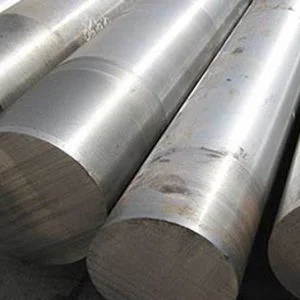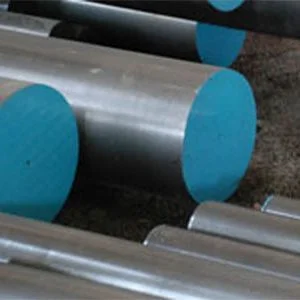Introduction

S7 tool steel is renowned for its exceptional toughness and versatility, making it a preferred choice for a wide range of industrial applications. Known for its ability to withstand shock loads and maintain its properties even under extreme conditions, S7 tool steel is indispensable in many high-demand environments. This blog explores the key properties, benefits, and applications of S7 tool steel, providing a comprehensive guide for those looking to understand its role in industrial settings. We will delve into its physical and mechanical properties, compare it with other tool steels, and provide practical advice on its applications and maintenance.
Key Properties of S7 Tool Steel
Understanding the properties of S7 tool steel is crucial for appreciating its advantages in various industrial applications. Here are some of the key properties:
High Toughness
- Impact Resistance: S7 steel exhibits high resistance to impact and shock loading, making it suitable for tools and parts subjected to severe conditions.
- Durability: It maintains its toughness even at high temperatures, which enhances its longevity and reliability.
Good Hardness
- Heat Treatment: S7 tool steel can be hardened to achieve a high level of hardness, typically ranging between 50-55 HRC (Rockwell Hardness Scale).
- Wear Resistance: Its hardness contributes to excellent wear resistance, making it ideal for tools that experience heavy use.
Excellent Machinability
- Ease of Machining: Despite its toughness, S7 tool steel can be machined with standard tools, allowing for precision in manufacturing.
- Workability: It maintains good workability during both heat treatment and final machining processes.
High Impact Strength
- Shock Load Tolerance: S7 steel is specifically designed to withstand high impact and shock loads without fracturing.
- Reliability: This property makes it a reliable choice for tools and components that undergo repeated stress.
Good Dimensional Stability
- Heat Treatment Stability: S7 tool steel retains its dimensional stability during heat treatment, which helps in maintaining the accuracy of the finished product.
- Consistency: Consistent performance is critical for applications requiring precise dimensions and tolerances.
Moderate Corrosion Resistance
- Resistance to Corrosion: While not as resistant to corrosion as stainless steels, S7 steel offers moderate resistance to corrosion, particularly when properly maintained and coated.
- Maintenance: Regular maintenance and protective coatings can enhance its resistance to corrosion.
Versatility
- Application Range: S7 tool steel is used in a variety of applications, from manufacturing tools and dies to heavy-duty industrial components.
- Adaptability: Its properties allow it to be adapted for different uses, making it a versatile material choice.
S7 Tool Steel vs. Other Tool Steels
Comparing S7 tool steel with other common tool steels can help highlight its unique advantages and applications. Here’s a comparison table:
| Property | S7 Tool Steel | A2 Tool Steel | D2 Tool Steel | O1 Tool Steel |
|---|---|---|---|---|
| Hardness | 50-55 HRC | 57-62 HRC | 55-62 HRC | 45-55 HRC |
| Toughness | High | Moderate | Low | Moderate |
| Wear Resistance | Good | Good | Excellent | Good |
| Machinability | Good | Fair | Fair | Good |
| Heat Treatment | Excellent | Good | Good | Excellent |
| Corrosion Resistance | Moderate | Moderate | Poor | Poor |
| Applications | Heavy-duty tools | General-purpose tools | Wear-resistant tools | Cutting tools |
Applications of S7 Tool Steel
S7 tool steel is utilized across a range of industrial applications due to its unique properties. Here are some common uses:
Heavy-Duty Tooling
- Applications: Used for tools and dies that are subject to high impact and shock loads, such as forging dies and extrusion dies.
- Benefits: Its high toughness and impact resistance make it ideal for handling heavy-duty tasks.
Mining Equipment
- Applications: Employed in the manufacturing of components for mining machinery, including rock drills and crushers.
- Benefits: S7’s durability and resistance to wear and impact are crucial in harsh mining environments.
Automotive Parts
- Applications: Used for automotive tools and parts that experience high stress and require high durability.
- Benefits: Ensures longevity and reliability in automotive applications where performance is critical.
Construction Equipment
- Applications: Applied in the production of construction tools and machinery components that endure heavy use and harsh conditions.
- Benefits: Provides the strength and durability needed for effective performance in construction tasks.
Aerospace Components
- Applications: Utilized in aerospace tooling and components where both high toughness and precision are required.
- Benefits: S7’s ability to maintain dimensional stability under stress is advantageous for aerospace applications.
Plastic Molding Tools
- Applications: Used in the manufacture of molds for plastic injection molding processes.
- Benefits: Its good machinability and toughness make it suitable for precise and durable mold construction.
Advantages of Using S7 Tool Steel
Using S7 tool steel in various industrial applications offers several distinct advantages:
Enhanced Durability
- Longevity: S7 steel’s high toughness and wear resistance contribute to the extended life of tools and components.
- Reduced Maintenance: The durability of S7 reduces the frequency of repairs and replacements.
Improved Performance
- Reliability: Consistent performance under stress ensures reliable operation in demanding environments.
- Efficiency: High impact strength and wear resistance improve overall efficiency in industrial processes.
Cost-Effectiveness
- Long-Term Savings: Although S7 steel may have a higher initial cost, its durability and performance can lead to cost savings over time through reduced maintenance and longer tool life.
- Value: Provides excellent value for applications requiring high performance and reliability.
Versatility
- Adaptability: S7 tool steel’s properties allow it to be used in a wide range of applications, from heavy-duty tooling to precision components.
- Flexibility: Its versatility makes it a valuable material choice for various industries and applications.
Maintenance and Care for S7 Tool Steel

Proper maintenance and care are essential to ensure the longevity and performance of tools and components made from S7 steel. Here are some key practices:
Regular Inspection
- Check for Wear: Regularly inspect tools and components for signs of wear and damage.
- Monitor Performance: Evaluate performance to ensure that the tool or component is functioning as intended.
Proper Storage
- Protect from Corrosion: Store S7 tool steel components in a dry environment and consider applying protective coatings to prevent corrosion.
- Avoid Impact: Keep tools and components protected from physical damage during storage.
Routine Maintenance
- Cleaning: Keep tools clean and free from contaminants that could affect performance.
- Lubrication: Apply appropriate lubricants to moving parts to reduce wear and friction.
Heat Treatment Management
- Follow Specifications: Adhere to recommended heat treatment procedures to maintain the desired properties of S7 steel.
- Avoid Overheating: Prevent overheating during processing to avoid compromising the steel’s properties.
Conclusion
S7 tool steel stands out as a premier choice for industrial applications due to its exceptional toughness, hardness, and versatility. Its ability to withstand impact and stress, combined with good machinability and wear resistance, makes it suitable for a wide range of demanding environments. By understanding its properties and benefits, industries can make informed decisions about its use, leading to improved performance, durability, and cost-effectiveness in their operations.
FAQ
What is the primary advantage of S7 tool steel over other tool steels?
The primary advantage of S7 tool steel is its exceptional toughness and impact resistance, making it ideal for applications subjected to high shock loads and severe conditions.
Can S7 steel be used in high-temperature applications?
Yes, S7 steel maintains its properties even at high temperatures, making it suitable for high-temperature applications where other tool steels might fail.
How does S7 tool steel compare to D2 tool steel in terms of wear resistance?
S7 tool steel offers good wear resistance, but D2 tool steel generally provides superior wear resistance due to its higher carbide content. However, S7’s toughness makes it a better choice for impact-prone applications.
What types of applications are best suited for S7 steel?
S7 steel is best suited for heavy-duty tooling, mining equipment, automotive parts, construction equipment, aerospace components, and plastic molding tools.
How should S7 tool steel be heat-treated for optimal performance?
S7 tool steel should be heat-treated according to the manufacturer’s specifications, typically involving heating to around 1,500°F (815°C) and then air or oil cooling to achieve the desired hardness and toughness.
Is S7 tool steel prone to corrosion?
S7 tool steel has moderate corrosion resistance. It is not as resistant to corrosion as stainless steels, so proper maintenance and protective coatings are recommended to prevent rust and extend its lifespan.
Can S7 tool steel be machined easily?
Yes, S7 tool steel is known for its good machinability, allowing it to be machined with standard tools and techniques, despite its toughness.
